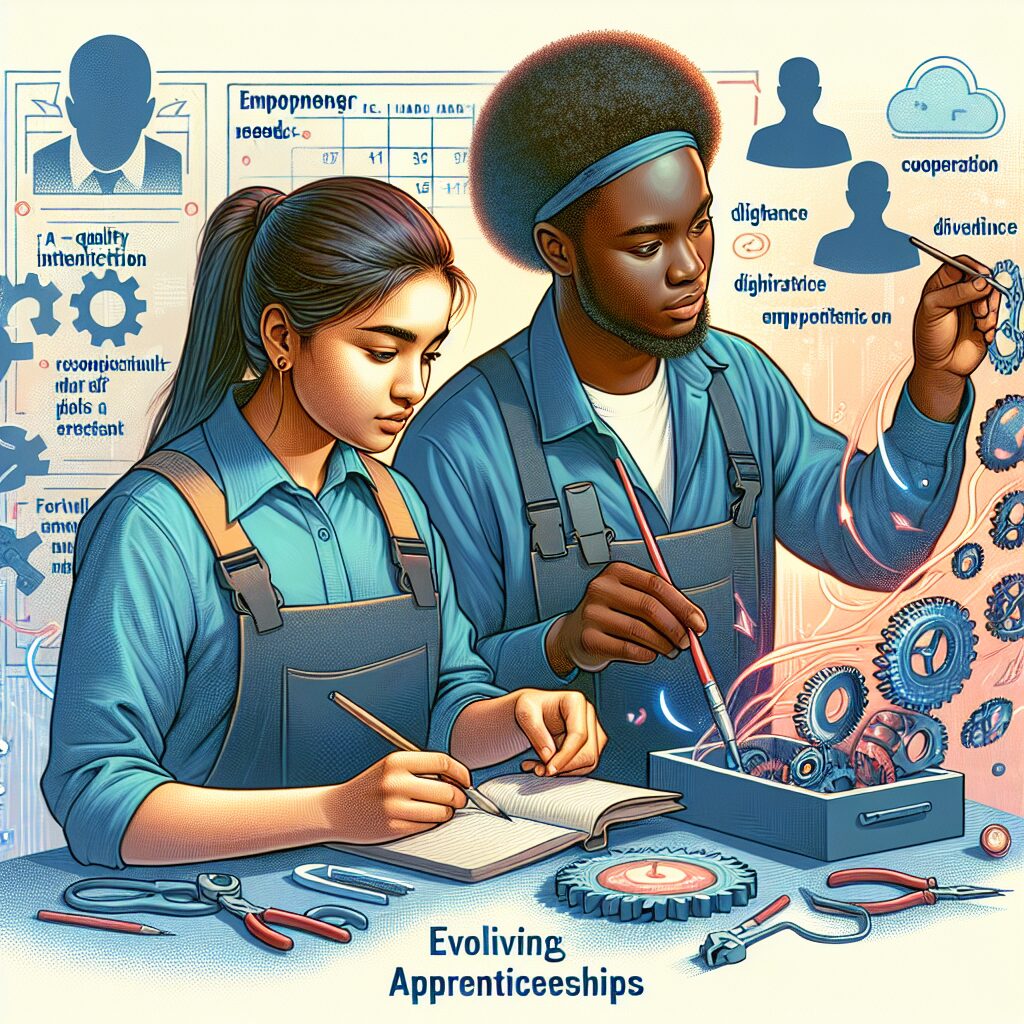
Revamping Apprenticeships: Building Skills for the Future

Apprenticeships at a Crossroads: Shaping the Future
Let’s tackle the elephant in the room: apprenticeships are at a crucial turning point. Not only do they hold the potential to create skilled professionals, but they can also shape the future of our workforce. Today, I found myself reflecting on some recent remarks made by the Skills Minister. With the upcoming Apprenticeship Units on the horizon, it’s the perfect time to consider how we can actively shape their future.
What strikes me the most is how these units are designed. The emphasis is on real value and quality, moving away from tokenistic gestures. This isn’t just another set of qualifications; it’s an opportunity to build significant skills that matter in the workplace.
Why Duration Matters
The first point that caught my attention is the focus on duration. The minister made it clear that one-day courses are out. Thank goodness for that! Apprenticeships shouldn’t be quick fixes. They need to offer meaningful engagement, typically spanning from one week to a few months with about 30 to 120 hours dedicated to on-the-job training or guided learning hours. It’s refreshing to see a commitment to investing time in developing competent professionals.
The longer duration allows apprentices to immerse themselves in their roles. They can learn, explore, and grow, rather than simply scratching the surface. Who wants to spend their time on something so fleeting anyway?
The Behavioural Element
So, how do we ensure that the behavioural attributes are not only taught but embedded within the apprenticeship framework? The challenge lies in balancing technical skills with essential interpersonal skills. We need to make behavioural training a priority. After all, nice skills paired with not-so-nice behaviours won’t help anyone in the long run.
Aligning Standards with Real Needs
Now let’s discuss the plan to derive apprenticeship units from existing occupational standards. On the surface, it seems like a logical approach. But let’s tread carefully here. Is this just repackaging what’s already been done? We need to ensure that these standards are genuinely reflective of what employers require. Otherwise, we risk disconnecting from the real needs of businesses.
To make a meaningful change, we should ask ourselves: Are our apprenticeship offerings truly aligned with what employers need? Or are we stuck in a routine pattern, assuming we know best without real feedback from the field? Engaging in these conversations now can lead to a brighter future for apprenticeships.
What’s Next?
I’m looking forward to diving deeper into these discussions at tomorrow’s AELP Autumn Conference in Birmingham. It’s a fantastic opportunity to share insights and exchange ideas with industry leaders. The future of apprenticeships is not set in stone; it is something we can shape together.
But what do you think? How do you feel about the direction of apprenticeship units? Are there aspects you’d like to see change, or do you think we’re on the right path? I’d love to hear your thoughts so we can keep this crucial conversation going!
As we continue to explore the world of apprenticeships, let’s remember that shaping the future is a collective responsibility. Join the journey, and let’s create meaningful pathways for the next generation together!
#CitySkills #Apprenticeships #SkillsDevelopment



